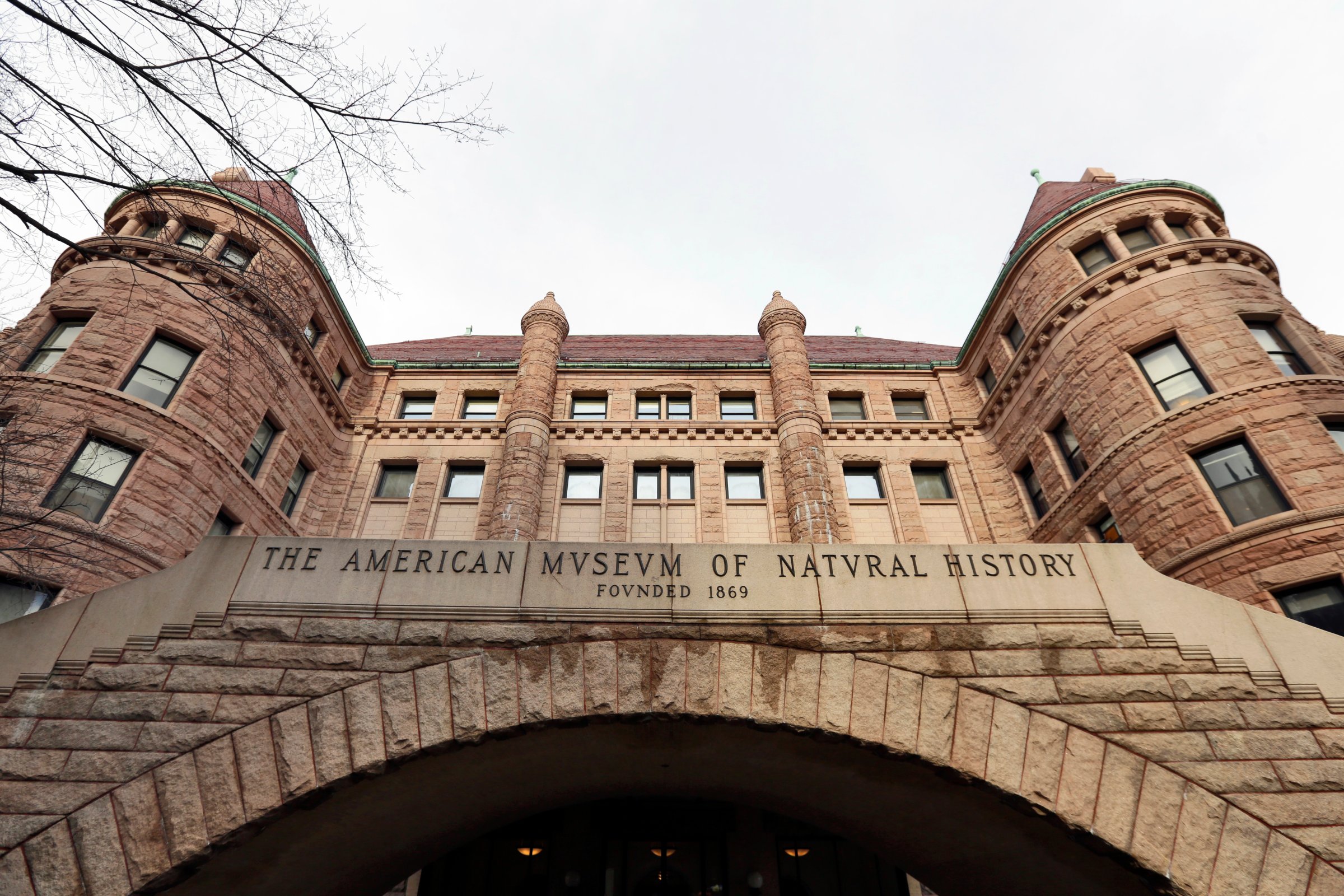
The American Museum of Natural History in New York City is the latest institution across the country to close access to Native American exhibits as authorities return or seek permission from tribes to display artifacts in accordance with a new Biden Administration rule.
The museum’s president Sean Decatur informed staff in a letter Friday of the closure of two of its halls filled with Native American objects, as well as the covering of cases in or just outside three other halls, starting Saturday. The museum will also suspend school field trips to one hall, but said it remains committed to supporting education about Indigenous peoples. Another exhibit developed with Indigenous communities remains open.
“While the actions we are taking this week may seem sudden, they reflect a growing urgency among all museums to change their relationships to, and representation of, Indigenous cultures,” Decatur wrote. “The Halls we are closing are vestiges of an era when museums such as ours did not respect the values, perspectives, and indeed shared humanity of Indigenous peoples. Actions that may feel sudden to some may seem long overdue to others.”
The Administration’s new rule, an update to the 1990 Native American Graves Protection and Repatriation Act that regulates the return of Native American human remains and sacred, cultural or funeral objects to descendants of those communities, came into effect on Jan. 12. The Natural History Museum already pulled all human remains, many of Native American or Black enslaved people, from display in October.
Other museums across the country, including Chicago’s Field Museum, Harvard University’s Peabody Museum of Archaeology and Ethnology, and the Cleveland Museum of Art have covered exhibits, or are working on the repatriation of remains, to comply with the updated law.
The changes follow a reckoning in recent years over the history of publicly displayed items, as Native Americans sought justice and respect for the remains of their ancestors and artifacts obtained without consent. Universities across the U.S. have also come under scrutiny. Last year, University of California, Berkeley disclosed that it possessed thousands of Native American remains, some dug up from local graves, and began the process of identifying and returning them to tribes.
U.S. Secretary of the Interior Deb Haaland, the first Native American to oversee the agency implementing the new rule, said in a statement in December that the updated law was “an essential tool for the safe return of sacred objects to the communities from which they were stolen.”
“Among the updates we are implementing are critical steps to strengthen the authority and role of Indigenous communities in the repatriation process,” she said. “Finalizing these changes is an important part of laying the groundwork for the healing of our people.”
The debate extends beyond the U.S., as museums in former colonial power Britain previously repatriated Native American remains to an Oregon tribe and this week agreed to return looted gold and silver items to Ghana on a long-term loan agreement, one among a number of contested items subject to requests for return from other governments.
More Must-Reads from TIME
- Why Trump’s Message Worked on Latino Men
- What Trump’s Win Could Mean for Housing
- The 100 Must-Read Books of 2024
- Sleep Doctors Share the 1 Tip That’s Changed Their Lives
- Column: Let’s Bring Back Romance
- What It’s Like to Have Long COVID As a Kid
- FX’s Say Nothing Is the Must-Watch Political Thriller of 2024
- Merle Bombardieri Is Helping People Make the Baby Decision
Contact us at letters@time.com